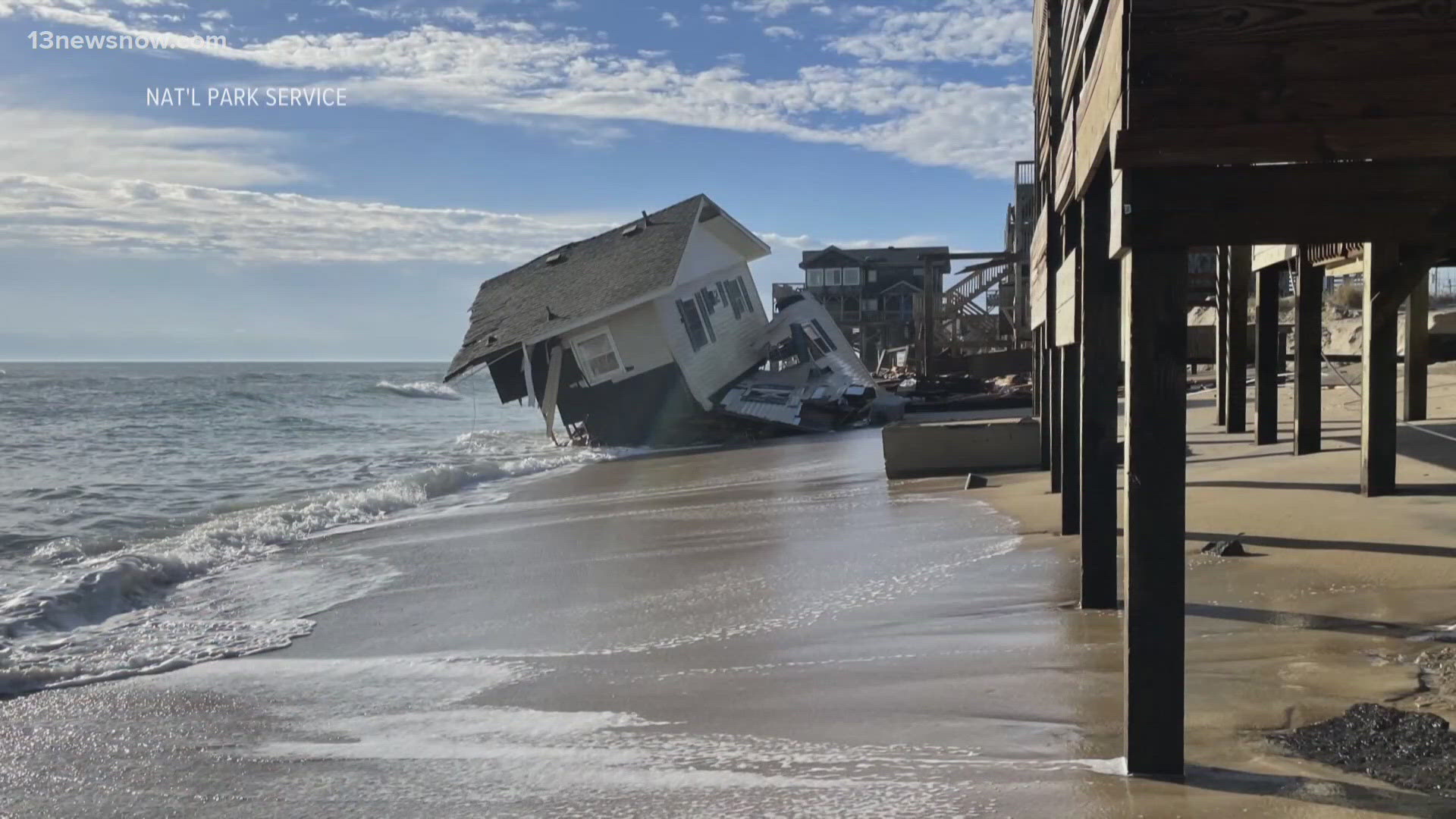RODANTHE, N.C. — Two lawmakers, one from North Carolina and the other from Maine, are teaming up to help coastal homeowners dealing with properties experiencing long-time erosion and the possibility of collapse.
U.S. Reps. Greg Murphy (R-NC) and Chellie Pingree (D-ME) have proposed the Prevent Environmental Hazards Act, which would provide more flexibility to homeowners insured by the National Flood Insurance Program (NFIP) when dealing with natural disasters.
This comes just a week after a home in Rodanthe, North Carolina — which is in Murphy's congressional district — fell into the ocean. This was the fourth house to collapse from the Ocean Drive stretch of Rodanthe since 2022, and the sixth along Cape Hatteras beaches since 2020.
Similarly, Pingree said coastal communities in Maine have been dealing with major storms in recent years.
Under the proposed legislation, homeowners could receive NFIP payouts for structures condemned for chronic erosion or unusual flooding, along with receiving advance payouts to demolish or relocate. These payouts would be limited to 40% if the homeowner failed to act before their property collapses, however. A spokesperson for Congressman Murphy tells 13 News Now that homeowners would have to buy new land and that the payouts would only cover demolition and relocation.
"Homeowners should not be forced to wait for their home to cause an environmental hazard before the National Flood Insurance Program is implemented," said Congressman Murphy.
Congresswoman Jen Kiggans representing much of Norfolk and the Eastern Shore, announced on Monday that she has joined Murphy in introducing the bill saying, "Preserving Virginia’s beautiful coastline and the many homes and businesses on our shores is critical for our environment and our economy."
Kiggans continued, emphasizing "I am proud to help introduce legislation to adjust the National Flood Insurance Program to account for chronic erosion so we can help keep our shoreline communities safe and thriving for decades to come."
As it stands now, NFIP does not cover long-term erosion or advance collapse payments which Murphy claims puts the public's health, safety and environment at risk.
Further, Murphy and Pingree say the proposed legislation would encourage homeowners to take action before their property collapses — limiting cleanup costs and ensuring it's done safely.
"Proactive planning will better serve eligible beneficiaries, improve public safety, save taxpayer dollars, and protect the surrounding environment," Murphy said in a release. "This effort gives homeowners more options to protect their livelihoods and expands forward-thinking approaches to the many coastal challenges we face. Additionally, it prevents environmental hazards along our pristine coastlines before they occur."
Roy Roberts has been visiting Rodanthe Beach with his family for a decade. He said coastal erosion has slowly shrunk a once beloved vacation spot.
"Last year, we had almost no beach here at all. We go back through old pictures and there was much more beach here when we first started coming here as opposed to now. "
Roberts hopes the bill will save what's left of the area.
"We’ve been coming here for over a decade to this specific area and it was a shame seeing these ocean houses just kind of being left to be claimed by the ocean," he said.

